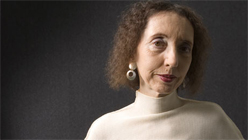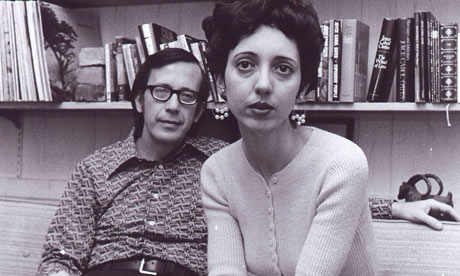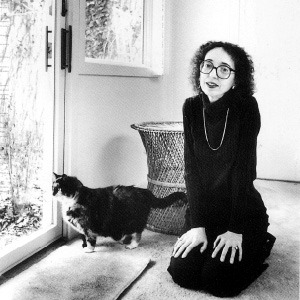Joyce Carol Oates, literary legend and the author behind The Widow’s Story, recently visited the KQED studios to record an episode of The Writers’ Block, which will be released next week (listen to Joyce’s episode). Until then, get to know her a little better with this Q+A, in which she talks about the dangers of time travel and what she learned after the passing of her husband.
In your interview with The Paris Review, you spoke of epiphanies that rained on you “like a meteor shower” following your husband’s death. Which realization surprised you the most?
JCO: Most of the epiphanies were platitudes everyone knows — at least intellectually. But it is something very different to think “All men are mortal” in terms of someone you love very much.
One of the last chapters of your memoir is titled “A Widow’s Handbook.” What are some other subjects you could potentially write an instructional manual on?
JCO: Being a writer, perhaps a “young writer.”





